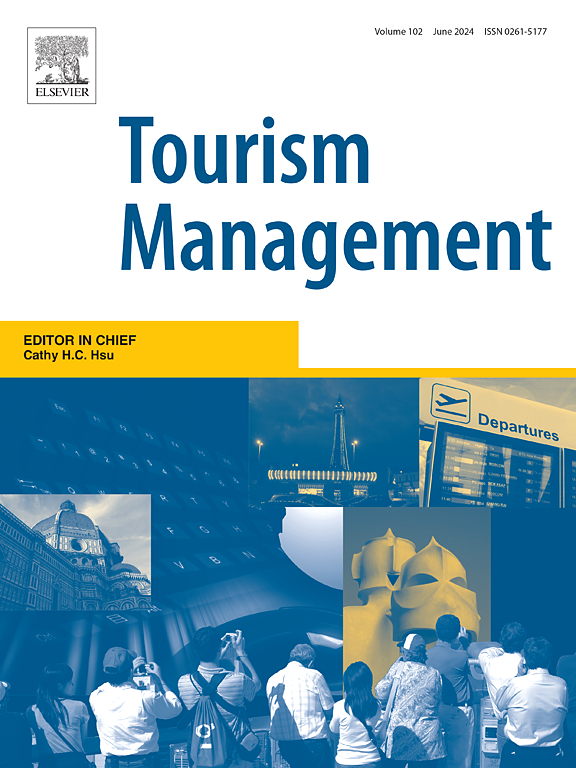Optimizing hotel demand forecasting through ensemble models: A Modern Portfolio Theory approach
IF 12.4
1区 管理学
Q1 ENVIRONMENTAL STUDIES
引用次数: 0
Abstract
This study introduces Modern Portfolio Theory (MPT) as a unified framework for combining tourism-demand forecasts. By leveraging the complementarity of time-series models, machine-learning regressions, and deep-learning sequence models, we recast ensemble design as a mean–variance optimization problem. Each forecasting model is treated as an asset with an expected return (mean forecast accuracy) and risk (error variance and covariance). Using daily hotel data from a major U.S. East Coast city (2015–2019), we demonstrate that MPT-weighted ensembles outperform both individual models and traditional variance–covariance (VACO) blends, achieving MAPE values below 5.1% and reducing AvgRelMAE by up to 81.4% relative to a naïve benchmark. These findings advance tourism and hospitality forecasting by introducing a transferable efficiency frontier toolkit, enabling managers to explicitly balance forecast accuracy and volatility while making more informed pricing, staffing, and inventory decisions in volatile market environments.
通过集成模型优化酒店需求预测:一种现代投资组合理论方法
本研究引入现代投资组合理论(MPT)作为旅游需求预测的统一框架。通过利用时间序列模型、机器学习回归和深度学习序列模型的互补性,我们将集成设计重塑为均值方差优化问题。每个预测模型都被视为具有预期收益(平均预测精度)和风险(误差方差和协方差)的资产。利用美国东海岸一个主要城市(2015-2019年)的每日酒店数据,我们证明了mmt加权组合优于单个模型和传统方差协方差(VACO)混合,MAPE值低于5.1%,AvgRelMAE相对于naïve基准降低高达81.4%。这些发现通过引入可转移的效率前沿工具包,促进了旅游业和酒店业的预测,使管理者能够明确地平衡预测的准确性和波动性,同时在波动的市场环境中做出更明智的定价、人员配置和库存决策。
本文章由计算机程序翻译,如有差异,请以英文原文为准。
求助全文
约1分钟内获得全文
求助全文
来源期刊

Tourism Management
Multiple-
CiteScore
24.10
自引率
7.90%
发文量
190
审稿时长
45 days
期刊介绍:
Tourism Management, the preeminent scholarly journal, concentrates on the comprehensive management aspects, encompassing planning and policy, within the realm of travel and tourism. Adopting an interdisciplinary perspective, the journal delves into international, national, and regional tourism, addressing various management challenges. Its content mirrors this integrative approach, featuring primary research articles, progress in tourism research, case studies, research notes, discussions on current issues, and book reviews. Emphasizing scholarly rigor, all published papers are expected to contribute to theoretical and/or methodological advancements while offering specific insights relevant to tourism management and policy.
 求助内容:
求助内容: 应助结果提醒方式:
应助结果提醒方式:


